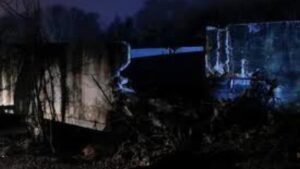An explosion on Friday damaged a critical canal that provides water to Kosovo’s primary coal-fired power plants, leaving concern about possible electricity shortages. Prime Minister Albin Kurti described the attack as a “terrorist attack“ by Serbia, citing involvement of professional criminal groups.
PM Kurti Points Fingers at Serbia
Speaking to the nation, Kurti said that this attack is a deliberate and calculated act against the critical infrastructure of Kosovo. “This is a criminal and terrorist attack meant to damage our critical infrastructure,” Kurti said. He also said that the attack was carried out by “professionals” possibly connected to gangs operating under Serbian influence.
Potential Electricity Crisis Looms
Prime Minister Kurti warned that if the canal damage is not swiftly repaired, parts of Kosovo could experience power outages as early as Saturday morning. He refrained from providing specific details about the extent of the damage but emphasised the urgency of restoring the water flow.
Rising Tensions in Northern Kosovo
The incident adds to the ongoing tensions between Kosovo and Serbia, particularly in the Serb-majority regions of northern Kosovo. While the blast’s full impact is still being assessed, the attack highlights the vulnerabilities of Kosovo’s essential infrastructure amidst persistent geopolitical frictions.
Authorities are investigating the incident, with international observers closely monitoring the situation.












